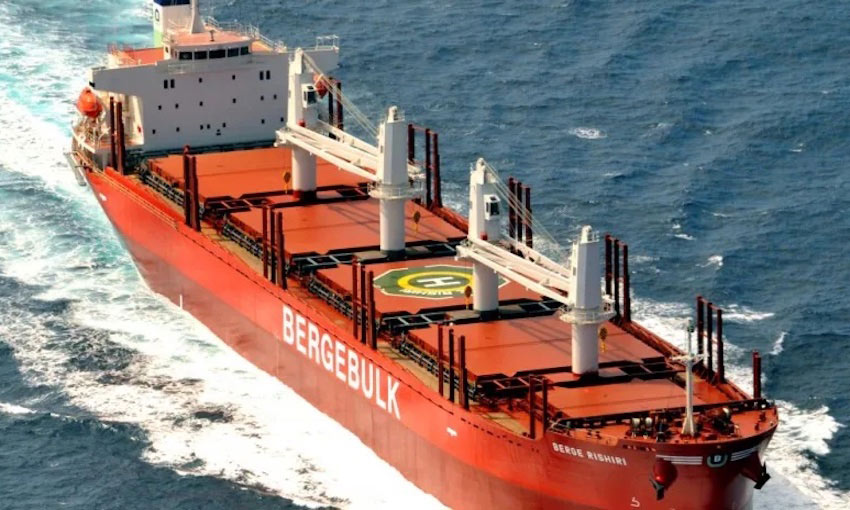A MARITIME union has called for an investigation into crew welfare and labour concerns after a seafarer was presumably lost overboard off the coast of New Zealand on the weekend.
The crewmember, a Chinese national, was reportedly last seen onboard UK-flagged bulk carrier Berge Rishiri at 0800 on Saturday 27 August but failed to report for duty at 1600.
Local media reports suggest national safety authority Maritime New Zealand presumes the man went overboard off the Otago coast and search efforts have been halted.
The Maritime Union of New Zealand is now calling on the national government to do more to protect the welfare of international crews in New Zealand waters.
According to Maritime Union of New Zealand national secretary Craig Harrison, incidents of this nature are “more common than many people realise”.
He called on Maritime New Zealand to investigate whether the crew of Berge Rishiri were having adequate rest breaks and that they were not required to secure any cargo while underway.
Mr Harrison believes there is a trend among New Zealand stevedores with low standards to have overseas seafarers lash cargo while the vessel is underway, rather than shore-based workers carrying out lashing work while the ship is in port.
If such is the case, it is reflective of an issue raised in the Netherlands last month in which a Dutch court ruled that cargo lashing work must be assigned to dockers rather than seafarers.
Mr Harrison also encouraged an investigation into the crewmember’s sea time.
“We would like to know how long the seafarer had been at sea and on duty and have assurances they were not kept on the vessel longer than their contracted period, as we have seen huge mental health issues with seafarers basically kept captive on vessels for months and sometimes years,” he said.
Mr Harrison said the Maritime Union of New Zealand and the International Transport Worker’s Federation would like the opportunity to meet the crew to discuss their welfare.
“These crew members are in New Zealand waters, their work is essential for New Zealand, and in our view their rights and welfare are often overlooked,” he said.





